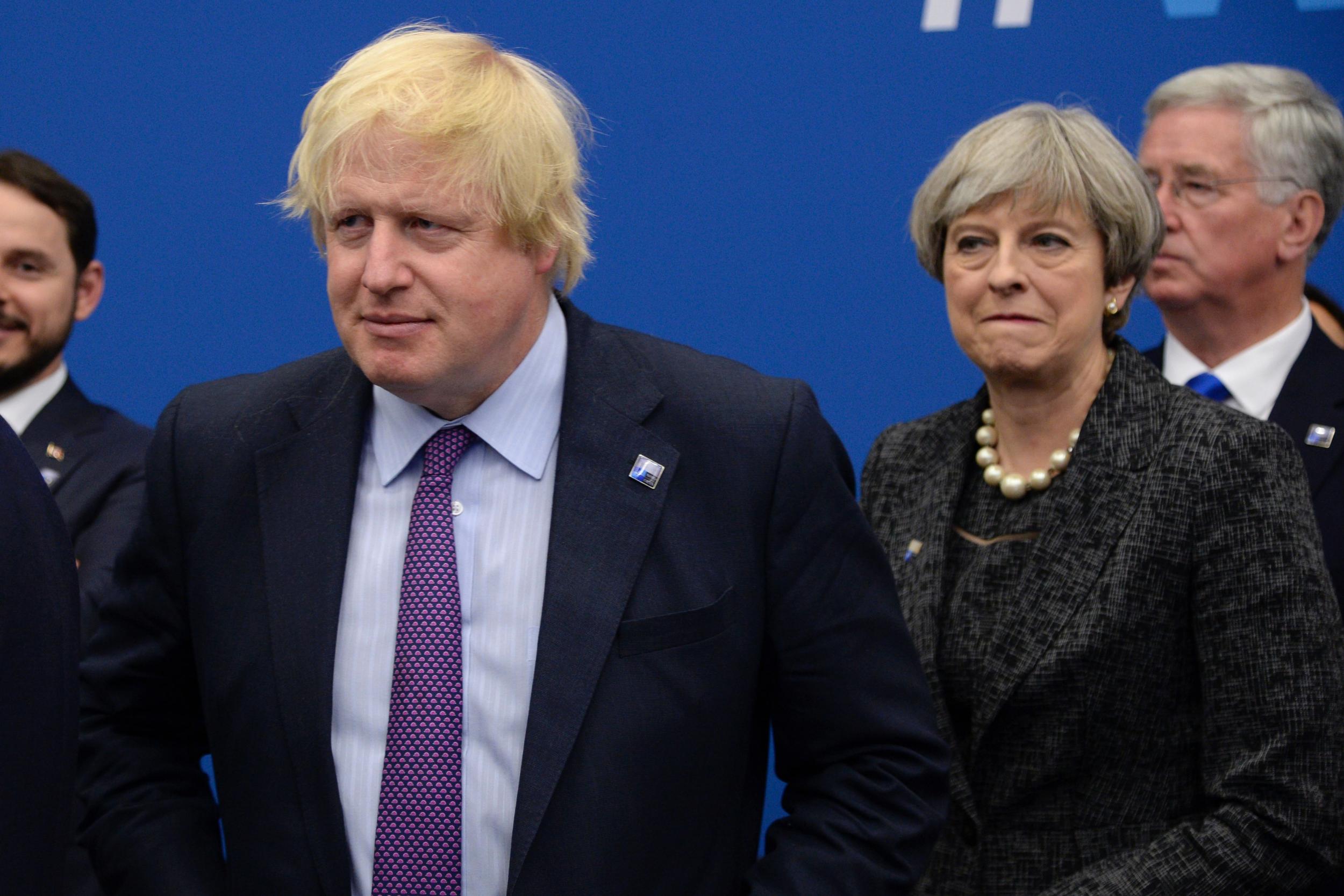Theresa May's mutineers are no 'dream team'. Like it or not, she's still the best we've got
Like John Major before her, and in similar circumstances of deep division, May survives because her many enemies cannot agree on a replacement

Your support helps us to tell the story
From reproductive rights to climate change to Big Tech, The Independent is on the ground when the story is developing. Whether it's investigating the financials of Elon Musk's pro-Trump PAC or producing our latest documentary, 'The A Word', which shines a light on the American women fighting for reproductive rights, we know how important it is to parse out the facts from the messaging.
At such a critical moment in US history, we need reporters on the ground. Your donation allows us to keep sending journalists to speak to both sides of the story.
The Independent is trusted by Americans across the entire political spectrum. And unlike many other quality news outlets, we choose not to lock Americans out of our reporting and analysis with paywalls. We believe quality journalism should be available to everyone, paid for by those who can afford it.
Your support makes all the difference.Even by the debased standards of the contemporary Conservative Party, it is odd to see Boris Johnson, Michael Gove and Jacob Rees-Mogg being touted as “the dream team”. They are not exactly a reflection of modern British society, for all their fine education.
Leaving Mr Rees-Mogg aside – for blessed are the peacemakers – there are very good reasons why neither Mr Johnson nor Mr Gove currently occupy No 10, and it is worth reminding ourselves of some of them.
In the last major Tory leadership crisis, after the departure of David Cameron and the disastrous EU referendum, both men proved themselves demonstrably incapable, if not unworthy, of positions of leadership. In his last-minute act of betrayal of Mr Johnson, Mr Gove proved why both Mr Johnson and he himself were unsuited to the leadership. Theresa May emerged as the last grown-up left in the room, there to clear up the mess all those silly boys had left behind. Untested in a full leadership contest, taken on trust, she was the least worst option available to them.
For all that has gone so badly wrong since, she still is. If she were not everyone’s second choice, she would not have survived as long as she has. She is there because she is there, it might be said.
The Remainers fear the “dream team” as a nightmare for the economy, and rightly so. The Leavers are terrified that the likes of Amber Rudd or Philip Hammond will sabotage their dreams of a clean or hard Brexit. Like John Major before her, and in similar circumstances of deep division, Ms May survives because her many enemies cannot agree on a replacement.
That is not in fact such an unusual phenomenon in political history and most countries survive such periodic pantomimes. The challenges facing Britain, though, are of an unusual order, and the stakes high. It may well be that the only way they should be faced is through a fresh appeal to the country via a general election or a further referendum.
The country, like the Conservatives, will have to get used to “the new normal”. The Prime Minister will continue to be unpopular with voters and unloved by her own MPs. The divisions in her party will make the EU negotiations even more fractious. Policy will continue to be fudged. Rows and gaffes and huffy resignations and backbench revolts and treachery will be commonplace.
In a way, none of this will matter that much because the context of all this British instability is European calm. The EU has almost all of the cards and will make the decisions the British cannot.
The European Commission will before long be giving the British a Norway-style take-it-or-leave it deal. It would do so even if Jeremy Corbyn were in charge – because Mr Corbyn’s policy, though put in nicer terms, is virtually identical to the Government’s. All the wishful thinking about a customs union or a soft Irish border shared by both front benches will not survive the hard language required in a legally binding UK-EU treaty. There is no space for creative ambiguity in such documents. Cakes cannot be eaten in one treaty clause but also preserved and had in another.
The crunch will come later this year, when the Barnier-Davis talks enter their last phases – and it will not matter much who is in No 10, or which party, because Europe can dictate the terms for as long as any form of Brexit is the UK policy. What the EU decides will be the best deal on offer and the British will take it in the end. Outside of the Liberal Democrats, with just 12 MPs, no dream team is at present available to avert that near inevitability.
Join our commenting forum
Join thought-provoking conversations, follow other Independent readers and see their replies
Comments